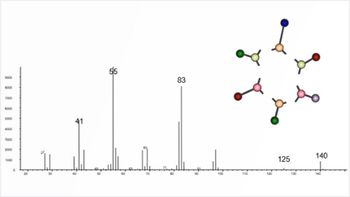
Addressing Analytical Techniques for Alternative Protein Products
Webinar Date/Time: Tue, Apr 25, 2023 1:00 PM EDT
Join Agilent and food industry experts to learn more about analytical techniques for plant-based alternative proteins.
Register Free:
Event Overview:
As the world's population grows toward ~ 10 billion by 2050, the development and consumption of alternative proteins is expected to grow at pace to supplement traditional sources of protein. The demand for proteins derived from plants and other biological sources is also being driven by increasing interest in healthy eating, a more sustainable food supply, and enhanced food resilience and food security. As with other food products, producers of alternative proteins must ensure the safety and nutritional content of their products.
Join Agilent and food industry experts to learn more about analytical techniques for plant-based alternative proteins.
Key Learning Objectives
- Are plant-based meat alternatives and meat nutritionally interchangeable?
- Current perspective of plant-based protein including global market trends and applications
- Analytical science of plant-based proteins including issues and solutions of off-flavors
Abstracts
Opportunities for Alternative Protein Testing
Dr. Lorna De Leoz, Global Food Segment Manager; Agilent
Impossible to Go Beyond Beef: Metabolomics Profiling of Meat and Plant-Based Meats
Dr. Stephan van Vilet, Nutrition Scientist; Utah State University
A new generation of plant-based meat alternatives—formulated to mimic the taste and nutritional composition of red meat—have attracted considerable consumer interest, research attention, and media coverage. This has raised questions on whether plant-based meat alternatives represent proper nutritional replacements to animal meat. This presentation will discuss the use of food metabolomics to profile nutrients in foods well beyond the limited nutrients routinely appearing on Nutrition Facts panels.
LC/Q-TOF Analysis and Nontargeted Chemometric Profiling of Meats and Plant-Based Alternatives
Seok Hwa, LC/MS Application Scientist; Agilent
Meat-alternative sources of protein, including plant-based and cell-based foods, are gaining popularity globally due to a combination of consumer interest, regulatory changes, and global food systems. For example, as Singapore aims to achieve 30% of its food production levels through self-production by 2030, many established food companies and startups are developing meat-substitute products. The main drivers of Singapore’s food production target are around health and environmental concerns. Historically, plant-based meat substitute foods have struggled to achieve the same texture and taste as animal meats. However, recent analogs of plant-based meats are significantly more similar in taste, texture, and composition as traditional meats due to technological advances in production methods. This application note describes a nontargeted profiling method to characterize chemical components of unknown foods, using a high-resolution accurate mass LC-Q/TOF. Also, various statistical tools are presented that translate accurate mass LC/Q-TOF data into more easily understandable information. Principal component analysis (PCA) of the data can be used to identify compounds, abundance distribution of the compounds in different samples, and how the compounds correspond to target taste profiles. Heat maps and hierarchical clustering of raw ingredients show similar distribution of proteins with target taste profiles.
Current Perspectives and Analytical Science of Plant-Based Proteins
Dr. Youngmo Yoon, Managing Director; Hanbit Flavor and Fragrance Co.
Customers purchasing plant-based protein products are requiring real meat’s qualities such as texture, juiciness, flavor and color, and nutritional characteristics from food manufacturers. However, the raw materials of plant-based proteins naturally produce off-flavors via lipid oxidation, Millard reaction, cysteine metabolism, and tryptophan/phenylalanine metabolism. The major off-flavors of plant-based protein such as beany and green notes are produced from furan and aldehyde groups. These off-flavors are the main issue for the plant-based protein quality. Therefore, we should understand how to analyze the off-flavors and how to mask the off-flavors for developing high-quality products of plant-based proteins.
The Flavor Chemistry of Hamburger Aroma and the Challenges for Plant- Based Prototypes
Dr. Lili Zyzak, Assistant Professor of Biochemistry; Eastern Kentucky University
The aroma of hamburgers cooking on the grill is easy to recognize and can be perceived from a distance, far from the site of cooking. The characteristics of such a recognizable odor may pose a significant challenge for the development of plant-based analogues. This presentation will describe the results of recent volatile (GC-MS) comparisons of the aroma between a beef hamburger and the various commercial plant-based hamburgers in the marketplace. Insights into the development and analysis of the hamburger aroma will also be highlighted in the presentation.
Characterizing the Elemental Content of Alternative Proteins
Dr. Jenny Nelson, Application Scientist; Agilent
The demand for alternative protein sources is projected to increase rapidly due to increasing population, pressure on land use, public concern about health, and the environmental and animal welfare aspects of intensive livestock farming. Cultured meat is one protein source being investigated by new and existing food companies. In contrast, foods based on plant, fungi, algae, and insect protein are also being developed or already available for purchase.
The sample preparation methods, analytical techniques, and quality control (QC) protocols defined in existing food quality and safety regulations, such as the FDA method from EAM 4.7, can be applied to these new foods. However, new food types and many new manufacturing processes for these novel foods can lead to unexpected contaminants. ICP-MS is a valuable tool for food producers, regulators, and consumers, as it can provide complete elemental characterization and accurate quantitative determination of all regulated elements.
Speakers:
Seok Hwa
LC/MS Application Scientist
Agilent
Seok Hwa is an applications scientist for LC-MS at Agilent Technologies Singapore. She has more than 14 years of experience in food safety and clinical applications. Seok Hwa holds a Degree in Applied Chemistry from the National University of Singapore.
Dr. Youngmo Yoon
Managing Director
Hanbit Flavor and Fragrance Co.
Dr. Youngmo Yoon joined Hanbit Flavor and Fragrance Co. Ltd, Korea, as a managing director in December 2021. Before joining the company, Dr. Yoon worked at Archer-Daniels-Midland (ADM), Kerry Taste and Nutrition, Sensient Flavors, and Volatile Analysis Corporation in the USA. Dr. Yoon earned his Ph.D. in Food Science and Technology, focusing on analytical food flavor chemistry at Mississippi State University and researched several analytical food flavor projects at North Carolina State University as a post-doctoral.
Dr. Lili Zyzak
Assistant Professor of Biochemistry
Eastern Kentucky University
Dr. Zyzak received her Ph.D. in Biochemistry from the University of South Carolina. She is currently an assistant professor of Biochemistry at Eastern Kentucky University. Dr. Zyzak’s research interests include flavor and food chemistry, and sensory evaluation. She teaches Biochemistry and a graduate course on Applied Biochemistry relating to food chemistry/flavor at EKU. Dr. Zyzak is a professional member of the American Chemical Society and the Institute of Food Technologists.
Dr. Jenny Nelson
Application Scientist
Agilent
Dr. Jenny Nelson is an Applications Scientist with Agilent Technologies specializing in Inductively Coupled Plasma Mass Spectroscopy (ICP-MS), Inductively Coupled Plasma Optical Emission Spectroscopy (ICP-OES), and Microwave Plasma Atomic Emission Spectroscopy (MP-AES). Her broad knowledge of atomic spectroscopy has been applied to both AOAC and ASTM through her serving on expert review panels, chairing committees, and volunteering to develop new methods needed by the industry.
Dr. Lorna De Leoz
Global Food Segment Manager
Agilent
Dr. Lorna De Leoz is the Global Food Segment Manager at Agilent Technologies. Lorna has years of experience in the food industry as a bench chemist, graduate researcher, and mass spectrometry specialist. Before joining Agilent in 2018, she worked on building mass spectral reference data at the National Institute of Standards and Technology (NIST). Lorna holds a Ph.D. in Chemistry from the University of California Davis. One focus of her dissertation was on the interactions between milk oligosaccharides and the gut flora of infants.
Dr. Stephan van Vliet
Nutrition Scientist
Utah State University
Dr. Stephan van Vliet is a nutrition scientist with metabolomics expertise in the Center for Human Nutrition Studies at Utah State University. Dr. Stephan van Vliet earned his Ph.D. in Kinesiology as an ESPEN Fellow from the University of Illinois at Urbana-Champaign and received training at the Washington University in the St. Louis School of Medicine and Duke University School of Medicine. Dr. van Vliet’s research is performed at the nexus of agricultural and human health. He routinely collaborates with farmers, ecologists, and agricultural scientists to study critical linkages between agricultural production methods, the nutrient density of food, and human health.
Register Free:
Newsletter
Join the global community of analytical scientists who trust LCGC for insights on the latest techniques, trends, and expert solutions in chromatography.




